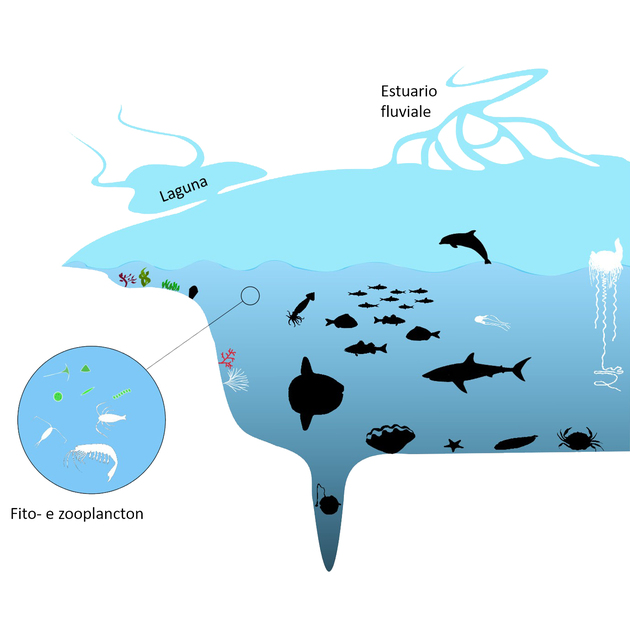

Diagram of the distribution profile of biota along the seawater column (image: I. Guarneri)
Functioning and Evolution of Marine Ecosystems
ISMAR conducts comprehensive research on marine ecosystems, ranging from transitional and coastal areas to the deep sea.
The institute places particular emphasis on studying the structure and functioning of both planktonic and benthic habitats and communities. Researchers investigate long-term changes in the phenology and diversity of various marine communities in response to climate change and human activities.
A crucial aspect of this research is the examination of ecosystems at observational sites deemed vital for understanding the interactions among different physical, chemical, and biological processes in the environment. This approach enables researchers to gather key insights into the dynamics between physical-oceanographic factors and ecological processes, particularly regarding the structural, dimensional, and functional biodiversity of communities.
This knowledge serves as the foundation for environmental planning, conservation, and management actions mandated by community strategies. ISMAR focuses its activities on three specific knowledge areas:
- Community and Habitat Change: Investigating how global change affects marine communities and habitats.
- Impact of Anthropogenic Activities: Studying the effects of human activities on marine ecosystems, including the introduction and spread of alien and invasive species, the proliferation of potentially toxic algal species, and the impact of microplastics.
- Biomonitoring and Bioassessment: Supporting public agencies through the monitoring and assessment of marine ecosystems.
Through these efforts, ISMAR contributes to a deeper understanding of marine ecosystems and their responses to environmental changes, supporting effective management and conservation strategies.

